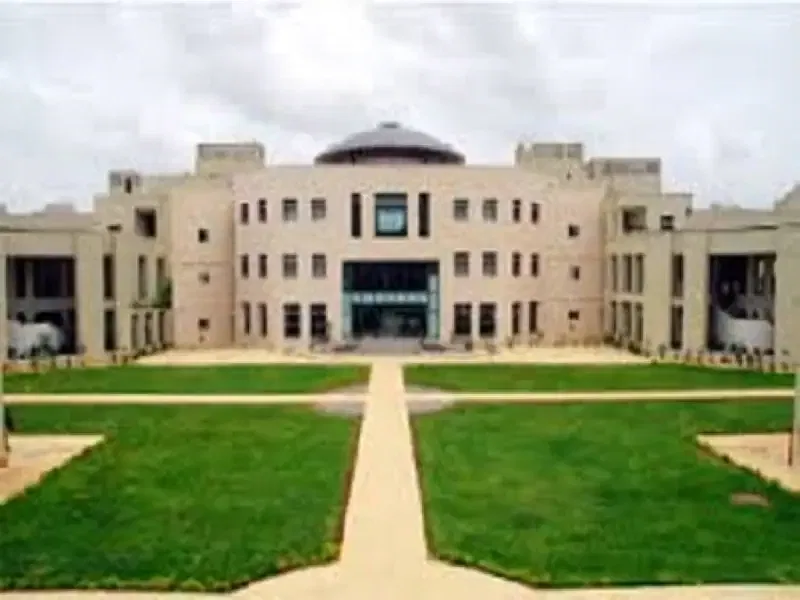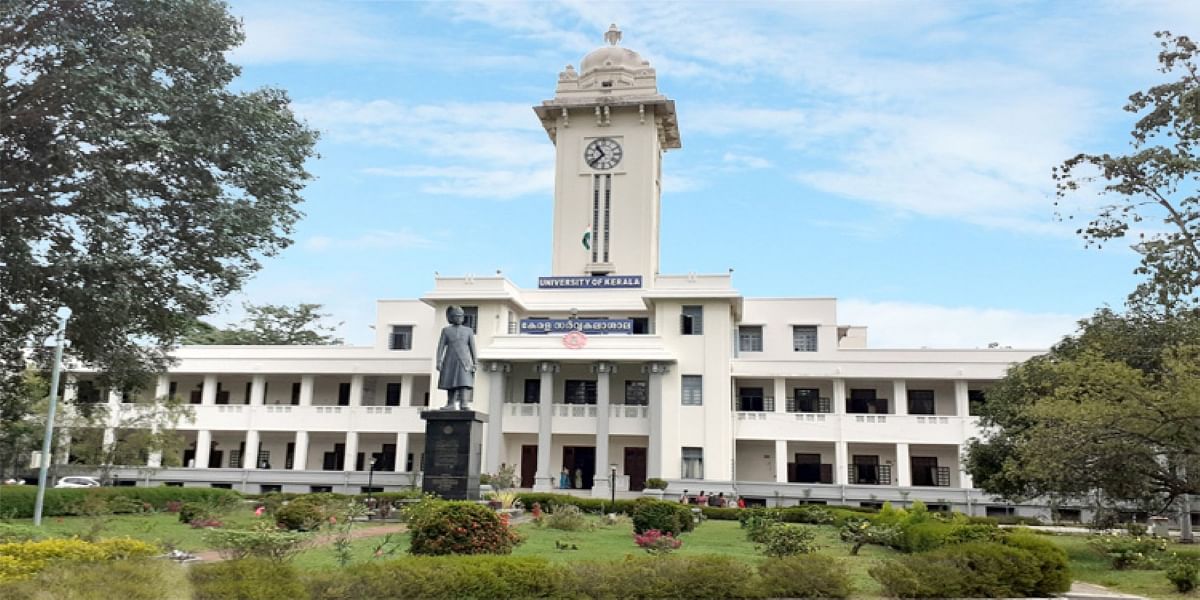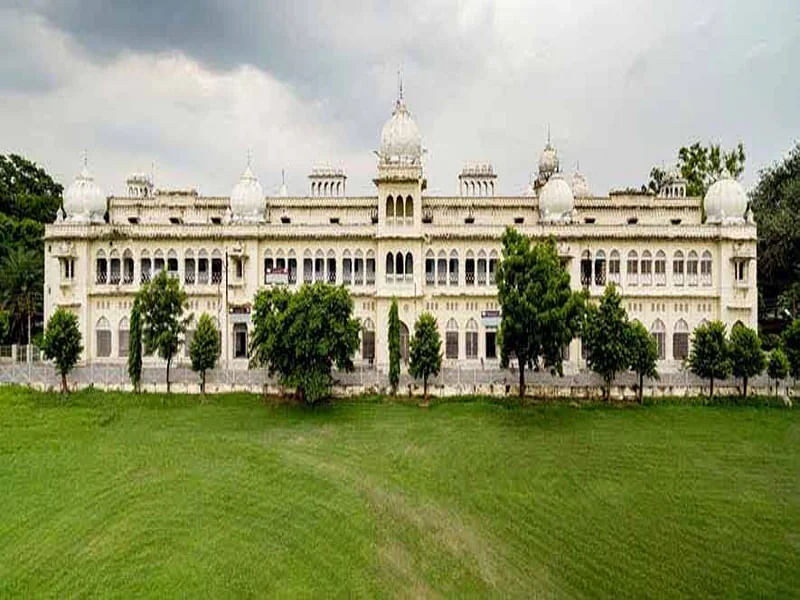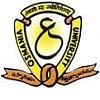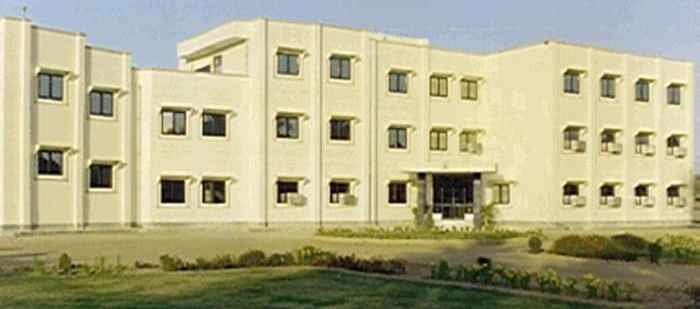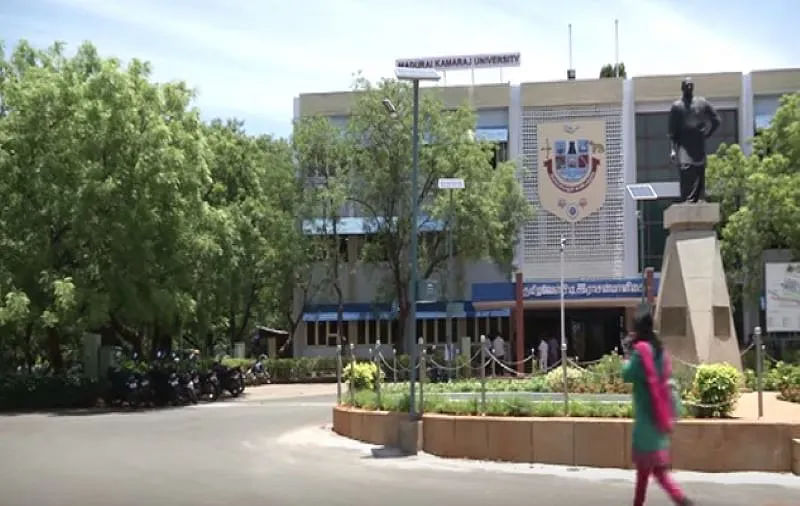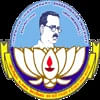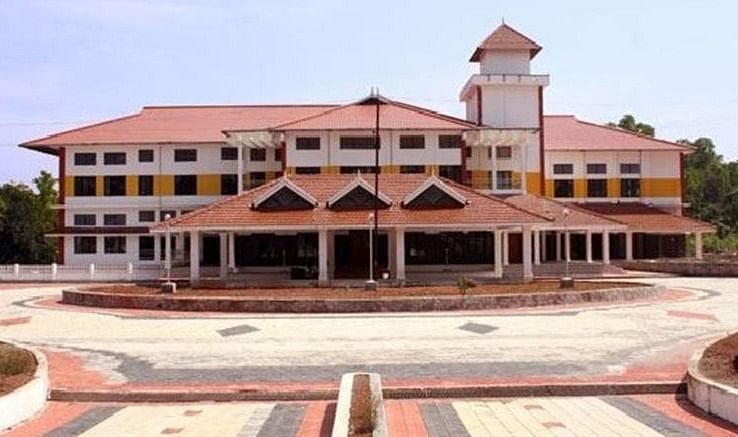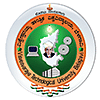BA Political Science Subjects and Syllabus 2025: Specialisations, Books, Course Details

BA Political Science syllabus a three year course divided into six semesters. Bachelor of Political Science syllabus explores topics related to political theory, comparative theory, public administration, global politics, and more.
BA Political Science subjects generally include Understanding Political Theory, Constitutional Government and Democracy, Public Policy and Administration in India, Classical Political Philosophy, and more. To be eligible for the BA Political Science program students must have completed their 12th from a recognized board with a minimum of 50% marks. Further, the course fee ranges from INR 8,000 - 40,000 based on the college type.
Some of the popular colleges offering students with the BA Political Science course are Delhi University, Miranda House, Amity University, Lady Shri Ram College, Christ University, and many more. The course also helps graduates work in various job roles such as Political Consultant, Policy Analyst, Editorial Writer, among others.
Table of Contents
- BA Political Science Core and Electives Subjects
- What is BA Political Science Syllabus?
- Year Wise BA Political Science Syllabus Topics
- BA Political Science First Year Syllabus
- BA Political Science Second Year Syllabus
- BA Political Science Third Year Syllabus
- Description of BA Political Science Subjects
- BA Political Science Teaching Methedologies and Techniques
- BA Political Science Reference Books
- BA Political Science Project Topics
- BA Political Science Course Structure
BA Political Science Core and Electives Subjects
BA Political Science subjects include topics such as Introduction to Political Theory, Political Process in India, Perspectives on Public Administration, etc. The BA in Political Science curriculum trains the students to be well-versed in global issues such as War, Freedom, Order, Justice, and Equality. The following is a list of BA Political Science core subjects:
- Global Political Scenario
- Forms of Governance
- History of Politics
- Comparative Politics
- Political Analysis
- Foreign Policy
- Social Justice
Other core subjects covered under the BA Political Science paper are mentioned here for reference.
- Political Economy
- Political Theory
- Classical, Indian, or Global Political Thought
- Human Rights
- International Relations
- Public Policy and Administration
The syllabus of the BA Political Science paper also includes the following topics:
- Citizenship in a Globalizing World
- Human Rights in a Comparative Perspective
- Development Process and Social Movements in Contemporary India
- Public Policy in India
- Colonialism and Nationalism in India
- India's Foreign Policy in a Globalizing World
- Perspectives on Public Administration
- Introduction to Comparative Government and Politics
- Perspectives on International Relations and World History
- Public Administration and Policy and Procedures
- Public Affairs
What is BA Political Science Syllabus?
BA Political Science stands for Bachelor's in Political Science is a three-year undergraduate program that emphasises the theoretical and political aspects of the world politics. It helps applicants understand the existing political scenario of the world.
The paper covers various topics, such as Global Politics, Comparative Politics, Political Analysis, Forms of Governance, and many more. Students can keep reading to learn detailed syllabus of BA Political Science course.
Year-Wise BA Political Science Syllabus Topics
Applicants must check the year-wise or semester-wise detailed syllabus topics of the BA Political Science program provided here. It will help candidates learn the topics required to be covered for each semester.
BA Political Science First Year Syllabus
The first year BA Political Science subjects cover topics like Understanding Political Theory, Constitutional Government and Democracy, Political Theory - Concepts and Debate, etc. The first year consists of 2 semesters.
Listed below are the BA Political Science subjects and the topics covered under them:
| BA Political Science Semester 1 Subjects | |
| Regional Language | Political Theory |
| English | Principles of Political Science |
| Public Administration | - |
| BA Political Science Semester 2 Subjects | |
| English | Regional Language |
| Freedom, Justice, and Equality | Environmental Studies |
| Political Economy | - |
BA Political Science Second Year Syllabus
The second year BA Political Science subjects explore the dynamics of Theories of International Relations and World History, Political Institutions and Processes in Comparative Perspective, Global Politics, etc.
The BA Political Science second year syllabus subjects and topics covered are detailed in the table below:
| BA Political Science Semester 3 Subjects | |
| Regional Language | Electives |
| Classical and Contemporary Political Thought | Indian Political Thought |
| English | Research Methodology |
| BA Political Science Semester 4 Subjects | |
| Statistics | Human Rights |
| Modern Political Philosophy | Electives |
| Western Political Thoughts | - |
BA Political Science Third Year Syllabus
The third year BA Political Science subjects offer choices for students from discipline-specific elective courses. Listed below are the BA Political Science subjects for the third year along with their topics covered:
| BA Political Science Semester 5 Subjects | |
| International Relations | Electives |
| Indian Constitution | Public Policy and Administration in India |
| Indian's Foreign Policy | - |
| BA Political Science Semester 6 Subjects | |
| Globalisation | Modern Constitution (France, China, and Japan) |
| Project Work and Viva | Indian Government and Politics |
| Principles of Public Administration | - |
Description of BA Political Science Subjects
The BA Political Science subjects might vary from institute to institute. Though, there are various subjects or courses that are commonly included in all. Students must check the list of major or core subjects included under the Political Science syllabus through the table shared below.
| Core Subjects | Detailed Descriptions |
| Principles of Political Science | In this section candidates will be able to learn about the basics of Political Science to understand the detailed political behaviour. |
| Political Theory | Here candidates will get to know the political concepts of Justice, Right, Equality, Freedom, and many more. |
| Public Administration | In this part applicants will be able to learn the implementation and formulation of public policies, enforcement of laws, etc. |
| Political Economy | Students will be able to compare the impacts and political structure on state's economy, trade, etc. |
| Modern Political Thought | The focus of this portion is to make students learn the liberty, equality, and social contract in detail and also the change from divine right to human rights. |
| International Relations | Here students will be able to make sense of conflict resolution techniques, interaction and cooperation between states, international organizations, and more. |
BA Political Science Common Subjects for All Semesters
There are various common subjects covered under the BA Political Science paper for all the semesters. Candidates must check the detailed list of subjects mentioned below.
- Political Economy
- Political Theory
- Classical/ Indian/ Global Political Thought
- Human Rights
- International Relations
- Public Policy and Administration
BA Political Science Teaching Methodologies and Techniques
BA Political Science teaching methodologies and techniques include practical sessions, along with traditional classroom teaching to develop a critical understanding of the nature and philosophy of Political Science.
The following are the various teaching approaches used in the BA Political Science course:
- Debates
- Group Discussion
- Report Writing
- Seminars
- Guest Lectures
- Field Projects
- Industry Driven Internships
BA Political Science Reference Books
The BA Political Science books give students an in-depth study of their area of concentration in addition to providing a foundational understanding of the subjects discussed in the curriculum. Students can access the textbooks for the course both online and offline.
BA Political Science Books First Year
Students are advised to refer to the Bachelor of Arts (BA) Political Science 1st year books listed in the table below:
| Books | Authors | Topics Covered |
| Political Theory: An Introduction | PS Talukar | Need for Political Theories, Types of Political Theories, History of Political Thought, Concept of Liberty in India, Political Equality |
| Constitutional Democracy and Government in India | Ruchi Tyagi | Focuses on a combination of institutional arrangements, constitutional forms, legal debates and also a developmental and policy approach to Indian and Global Politics |
| Political Philosophy | Knowles, Dudley | Fundamentals of Philosophy, Politics, Liberty, Justice, Property, Rights, Law, The Enforcement Of Laws by Authority |
BA Political Science Books Second Year
The BA Political Science 2nd year books are provided in the table below for students' reference:
| Books | Authors | Topics Covered |
| Public Administration: Understanding Management, Politics, and Law in Public Sector | D. Rosenbloom, R. Kravchuk. and R. Clerkin |
Contemporary public management, Significant Changes to Federal Administration, Budgeting, and Public Finance |
| International Relations: A Concise Introduction | M. Nicholson | United Nations & Security Disarmament, Non-Traditional Security Threats, Global Economy, Foreign policy and diplomacy |
| Theory, Institutional and Comparative Politics | M. Pennington | Theory, Institutions and Comparative Politics, Rational Choice Institutionalism, Cultural Institutionalism, Marxist structuralism |
BA Political Science Books Third Year
The BA Political Science 3rd year books used by most of the institutions in India are provided below:
| Books | Authors | Topics Covered |
| Introduction: Theorizing Democratic Consolidation, Parties and Coalitions | E Sridharan | Democratization and the sustainability of democracies on Asian case, Coalition politics and the consolidation of democracy |
| Issues and Methods in Comparative Politics (An Introduction) | Todd Landman | A detailed discussion of regression analysis and diffusion, Analysis of justice, inequality, and compliance, New methods and treatments of contemporary comparative politics. |
| Woman’s Place in Religion and Society | P. Ramabai | Women, Emancipation and Equality, Woman’s Self-Perceptions, Views on the Condition of Indian Women, Social Reform and Women's Issues |
BA Political Science Project Topics
Through project-based learning, the BA Political Science program focuses on both national and international political systems. Working on projects is primarily intended to ensure that students effectively understand the concepts discussed in the BA in Political Science syllabus.
The following are some of the trending BA Political Science project topics:
- Behavioral Approach to Parties Comparison
- Soviet Union Ideology
- Anglo-Saxon Traits in the American Government
- United States versus the United Kingdom Foreign Policies
- Cultural Pressure between the United States and Japan
- Presidential versus Parliamentary Democracy
- Political Participation of Women and Social Decadence in India
- Followership and Leadership as a Means of National Development
- Good Governance and Conflict Management
BA Political Science Entrance Exam Syllabus Topics
To get admission into the desired program and college for Political Science paper, students need to qualify for the required entrance examination. Based on the entrance exam score students will get opportunities to select the college and courses. However, the most common entrance conducted every year for admissions into bachelor's program for the Political Science paper is CUET UG.
The BA Political Science CUCET UG syllabus topics are provided in the section below for candidates use.
- The Era of One-Party Dominance
- Nation-Building and Its Problems
- Politics of Planned Development
- India'a External Relations
- Challenge to and Restoration of the Congress System
- Crisis of the Constitutional Order
- Regional Aspirations and Conflicts
Other CUET syllabus topics for the Political Science paper are:
- US Dominance in World Politics
- Five-Year Plans
- Expansion of State Sector
- Rise of New Economic Interests
- Famine and Suspension of Five-Year Plan
- Green Revolution and Its Political Fallouts
Top BA Political Science Colleges
Top Arts Entrance Exams
BA Political Science Fee Structure
FAQs on BA Political Science Syllabus and Subjects
Q: What is the BA first year Political Science syllabus?
The political science BA 1st year syllabus includes subjects like Understanding Political Theory, Constitutional Government and Democracy, Political Theory - Concepts and Debate, etc.
Q: What are the core subjects in BA Political Science?
The core subjects in the BA Political Science syllabus are Political Theory, Constitutional Government and Democracy in India, Perspectives on Public Administration, etc.
Q: What is the assessment criteria for BA Political science?
Assessments can include a mix of written examinations, debates, group discussion report writings. The evaluation methods can vary depending on the nature of the subject.
Q: What is typically included in a Capstone Project in BA Political Science three year syllabus?
A Capstone Project typically consists of six key components which include an introduction, literature review, methodology, discussion, conclusion, and recommendations.
Q: What topics are covered in human rights law and policy?
Human Rights Law and Policy covers topics like Civil rights, Human Rights Conventions, Economic, Social and Cultural Rights, etc. The detailed topics for the particular section has been shared for students reference.
Q: What are the important books for 4th semester BA Political Science?
A few popular BA Political Science 4th semester reference books include Introduction: Theorizing Democratic Consolidation, Parties and Coalitions by E Sridharan, Issues and Methods in Comparative Politics by Todd Landman, Woman’s Place in Religion and Society by P. Ramabai, etc.
Q: What is the difference between BA Political Science and BA (Hons) Political Science?
The major difference between the BA Political Science and BA (Hons) Political Science is that the BA (Hons) provides students with in-depth and specialized knowledge related to the program. It focuses on research and advanced courseworks whereas the normal BA program covers the broad range of syllabus covered under humanities paper.
Q: Is BA Political Science tough?
The BA Political Science program is not very tough or difficult for the applicants if they will prepare well for the paper. Complete dedication and genuine interest and concentration will help applicants in facing all the challenges easily and will also provide them with the ability to secure good marks. Thus, the difficulty level of the paper solely depends on the interest and preparation level of the candidate.
Q: What are the benefits of studying BA in political science?
There are various benefits of studying BA in political science for the students such as it helps candidates understand the in-depth political system and issues of any particular organization or the entire nation. It provides applicants with career options in various fields, improves the critical thinking level, improves civic engagement, and many more.
